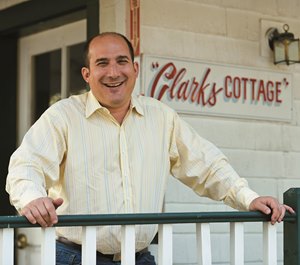Workers' Comp Rates to Drop 15% for New York Trainers


Oct. 1 promises to be a rewarding day for New York horsemen.
Aside from a card featuring four graded stakes worth $1.4 million at Aqueduct Racetrack, the initial day of October will mark the start of a new class code and lower workers' compensation costs for trainers.
"This is very good news," said New York Thoroughbred Horsemen's Association president Joe Appelbaum.
Due to changes put in place by the New York Insurance Rating Board, workers' comp charges for horsemen stabled in the Empire State will drop by 15.6% on policies that go into effect either on or after Oct. 1.
The new rate will be 11.54, which marks a decline from the current figure of 13.68. That rate for insurance on a trainer's workers is applied to each $100 of the operation's payroll, meaning that a trainer with annual salaries of $200,000 will roughly save $4,000 in payments.
The lower rate also continues a steady decline since 2017 when the rate was a costly 27.08.
"We have seen workers' comp costs drop considerably in the last five years and it has saved New York trainers tens of thousands of dollars," Appelbaum said. "The rate is down by nearly 60% since 2017."
Comparing the new rate and the 2017 charges, trainers with the aforementioned $200,000 payroll will be paying approximately $15,000 less per year than they did five years ago.
"When you consider the $35 million a year in salaries that trainers pay," Appelbaum said, "we've seen total costs lowered from $9 million a year to $3 million."
In addition, Appelbaum said there will be substantial improvements in the experience modification rates for horsemen who have better than average safety records in terms of claims filed.
"There are also experience modifications that are based on how their particular business is operating," Appelbaum said. "Operations where (claims) are lower than average will see a drop of almost another 30%. The state is encouraging safer operations with lower rates for those operations. The experience modification is going to become more important, so keeping their people safe and healthy will really pay off for trainers dollars and cents wise."

Trainer Dave Donk, who is stabled in New York throughout the year, said he was grateful for the impending savings.
"Changes like this are always beneficial because it affects your business model. The code is now getting back to where it used to be," he said. "There are some financial incentives to race here and hopefully some people, especially the younger, middle-aged trainers, will take advantage of it. Lowering costs matters and every bit of money saved adds up."
Seven-time Eclipse Award-winning trainer Todd Pletcher, who operates one of the largest and most successful stables in New York, said he had yet to review the new rates but welcomed any savings.
"Any little bit helps," he said.
